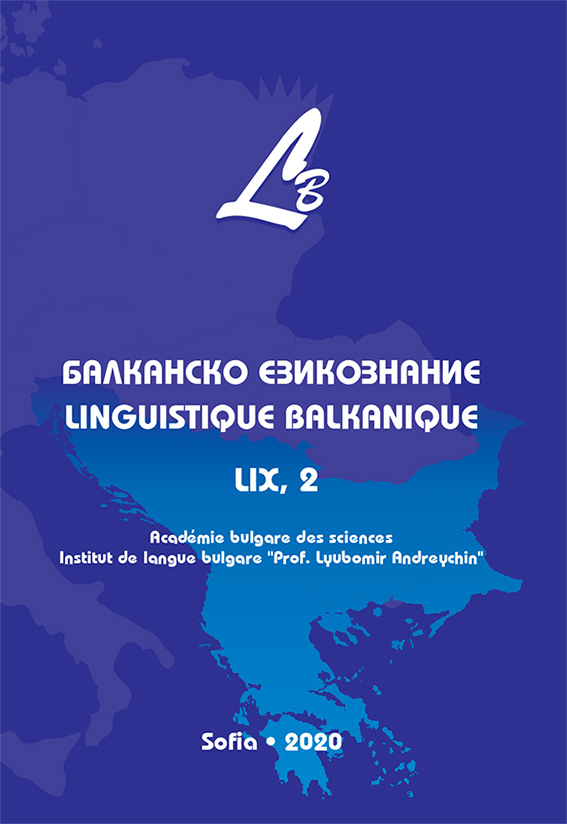MEDICINAL HERBS IN FOLK MEDICINE OF THE AROMYNS IN MALOVISHTA (NORTH MACEDONIA): ETHNOLINGUISTIC STUDIES
MEDICINAL HERBS IN FOLK MEDICINE OF THE AROMYNS IN MALOVISHTA (NORTH MACEDONIA): ETHNOLINGUISTIC STUDIES
Author(s): Alexander A. NovikSubject(s): Language studies, Language and Literature Studies, Theoretical Linguistics, Lexis, Comparative Linguistics, South Slavic Languages
Published by: Институт за български език „Проф. Любомир Андрейчин“, Българска академия на науките
Keywords: Aromynian; Balkan languages; phytonyms; medicinal herbs; folk medicine, healers
Summary/Abstract: The paper analyses the phytonyms of medicinal herbs in the linguonym of the Aromyns in Malovishta (opshtina Bitola, North Macedonia) and their conformity with languages of the Western Balkans: Bulgarian, official language of the republic of North Macedonia, Serbian, Croatian, Modern Greek, Albanian, etc. The main topics of the study are folk medicine and ethnobotany. The linguistic and ethnological data are based on the materials of fieldwork in Macedonia in 2017. The Aromyns are famous among their ethnic neighbors (Macedonians, Albanians, Serbs, Roma, Turkish, etc.) as good healers and perfect specialists in the sphere of medicinal herbs and plants. In recent years, after the disintegration of the former Yugoslavia, the healers’ practice among Aromyns continues old Balkan traditions and has innovations and new forms determined by language, cultural and social contacts with other ethnic groups.We have fixed local denotations of the herbs and plants which have a huge role in healers’ practice among Aromyns in opshtina Bitola, as well as their medicinal properties: ʻmintʼ L. Méntha, Arom. gjázmă, Mac. dial. ме́нта, Serb. dial. на́не; in literary languages: Mac. ме́нта (ʻmintʼ, ʻmint tinctureʼ), Serb. на́на, Bulg. ме́нта; Alb. ménd/ër, -ra, Mod. Gr. μέντα, used to calm stomach pain, “opens the appetite”, etc.ʻMelissaʼ L. Melissa, Arom. matócina, Serb. ма́тичњак; in literary languages: Bulg. ма́точина, Mac. мелиса; used as a sedative, “for good health”, Mod. Gr. μέλισσα, Alb. bári i blétës, bar bléte, Croat. Melissa, etc. ʻSt. John’s wortʼ L. Hypericum, Arom. kantarión, Serb. dial. на́валич; in literary languages: Serb. богородична трава (богородично цвеће ʻlilyʼ), Mac. жолт кантарион, Bulg. жълт кантарион; Alb. lúlja e balsámit, lúle balsámi; used to normalize blood pressure, cardiac activity, etc. In conditions with limited resources for healthcare, medicinal herbs and plants have become an inextricable component of the medical practices of doctors and healers. These plants are perceived by many of our informants as an effective and unquestionable cure-all. Even properties not acknowledged by either traditional medicine or herbal healers are frequently attributed to them. The new trend towards consumption of ecologically clean products (called bío in North Macedonia and Albania) increases demand for popular medicinal herbs, which are perceived as traditional and correct.
Journal: Балканско езикознание / Linguistique balkanique
- Issue Year: 59/2020
- Issue No: 2
- Page Range: 323-332
- Page Count: 10
- Language: Russian
- Content File-PDF

